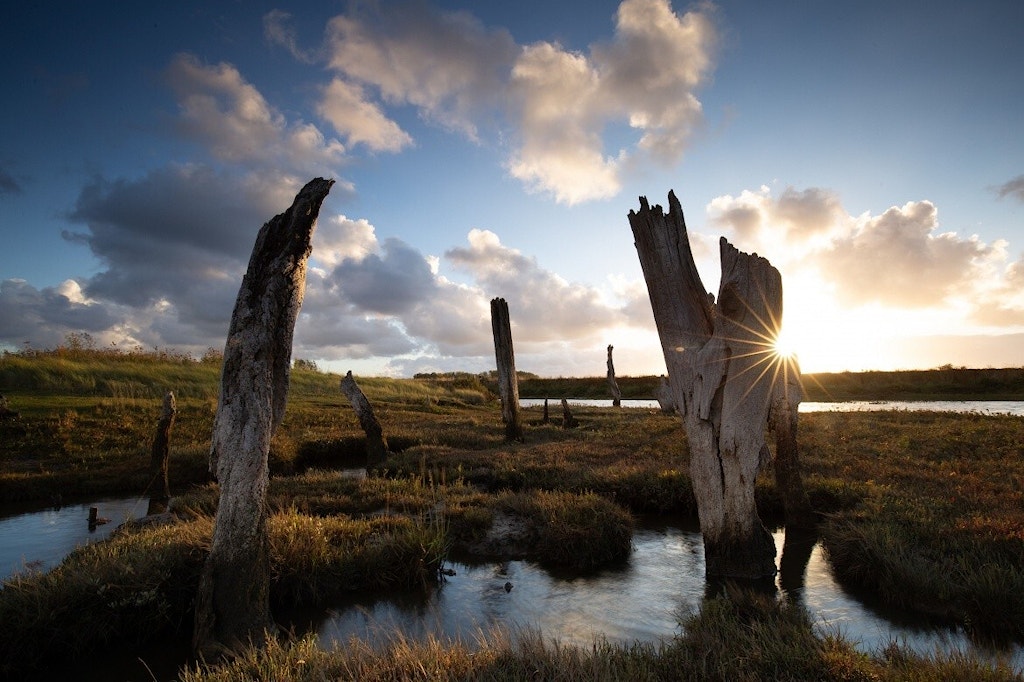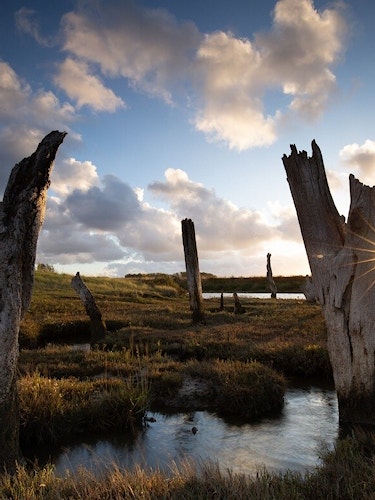Wild Ken Hill
Combining rewilding and regenerative agriculture for nature recovery on land in Norfolk.

The Wild Ken Hill rewilding project has ambition to move away from existing agricultural and forestry techniques and allow wild nature to thrive. The project’s mission is to demonstrate that land can be used to tackle climate change, and improve air and water quality.
The project is looking to restore missing functions in the landscape, primarily by stepping back and managing nature’s recovery with a light touch. It wants to create a space for communities to explore and enjoy nature. Wild Ken Hill has ambitious plans for introducing new enterprises, such as camping, glamping and safaris, and educational and wellbeing pursuits.
The project has divided into three main approaches — a rewilding area, where beavers and grazers are being introduced, a traditional conservation approach for their coastal areas, and regenerative farming to continue to provide food in a sustainable and biodiverse way.

KICK-STARTING REWILDING
Cessation of arable farming and intensive grazing has begun to allow for the introduction of low density herbivores (Red Poll cattle, Tamworth pigs, Exmoor ponies). Natural regeneration will be allowed across the site, with some woodland thinning to encourage wood pasture habitats. Native species reintroduction, including beavers, to establish natural wetland dynamics have commenced within an enclosure.
REWILDING SUCCESSES
After undertaking rigorous baseline monitoring between 2019 and 2022, Wild Ken Hill was able to celebrate that rewilding had significantly boosted plant diversity in just three years. Rewilding at the site – including the introduction of carefully chosen free-roaming livestock such as Exmoor ponies – across 1,000 acres of poor quality farmland and some woodland meant that:
- the average number of different plants roughly doubled
- several rare plants with conservation status spread prolifically
- scrub and tree species began to naturally regenerate
By increasing food for insects, this botanical diversity will have a positive knock-on effect right up the food chain. Read more about the study on Wild Ken Hill’s website.


Meet the Rewilders: Wild Ken Hill
Meet Dominic Buscall, the man leading the transformation of his family’s Norfolk farm.


Making nature our business
future plans
- Extensive monitoring including wildlife, habitats and soil health using experts and experiences volunteers
- Introduce wild beavers to help with natural flood management (outside of the existing enclosure)
- Be an inspirational educational resource to many over the next few decades

The Rewilding Network
The Rewilding Network is the go-to place for projects across Britain to connect, share and make rewilding happen on land and sea.
More about Wild Ken Hill
Find out more about Wild Ken Hill on their website.